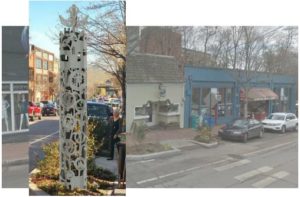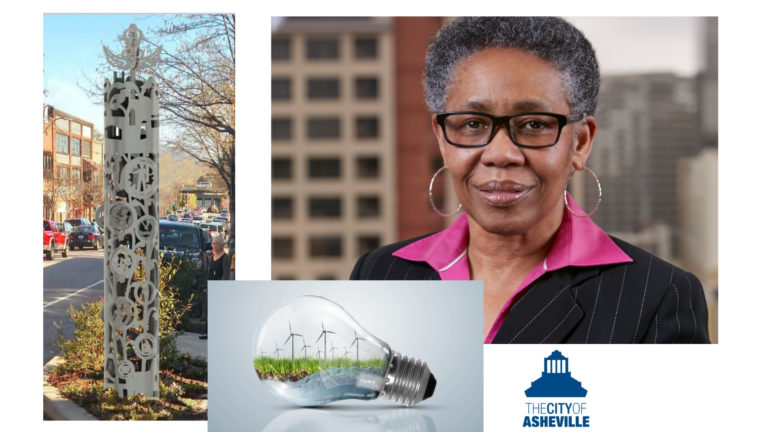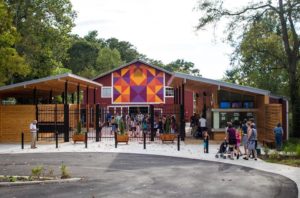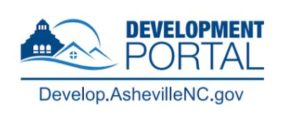With 2018 nearly in the books, it’s time to take stock of City of Asheville projects and developments from the past year. Here are 10 topics that your City government advanced in 2018. We’ll have 2019 initiatives to look for
in another roundup Jan. 1.
Debra Campbell becomes Asheville City Manager
The search for a new City Manager began in April 2018 with the selection of a recruitment firm. City Council’s goal was to work with a community to craft a candidate profile and then find a City Manager that matches the community’s vision for this leader.
City staff went out into the community to gather input on the traits they wanted to see in a City Manager candidate. With help from key community members, staff and city council narrowed the candidate pool and conducted interviews in early October. At its Oct. 17 meeting, City Council voted unanimously to name Debra Campbell as the Asheville’s new City Manager. Campbell, who began her job Dec. 3, comes to the City from her previous job as Charlotte’s Assistant City Manager.
APD open data releases
In a continuing effort to increase transparency and provide the community with access to data, the Asheville Police Department has worked in partnership with several community members to make data sets available to members of the public through the Open Data Portal. The following data sets are currently available:
- Use of force
- Citizen complaints
- 9-1-1 calls
- Accidents involving cyclists
- Accidents involving pedestrians
- Traffic stops
- Crime Statistics
The Asheville Police Department will continue to work to make additional data sets available online. Information on traffic stop reports, crime statistics, and other data sets can be found on the open data portal, as well as the Community Crime Map and SimpliCity.
New Nature Center entrance opens
In September, the WNC Nature Center welcomed guests for the first time at its all-new front entrance. Site improvements include handicap parking and ramp, sidewalks through parking for safety, new guest restrooms, an events plaza and new exhibits. The project was funded the City of Asheville and the Friends of the WNC Nature Center with support from Buncombe County Tourism Product Development Fund and Festiva as well as many donations from charitable foundations, businesses and other individual donors.
Smart parking meters installed
In 2018, the City’s Parking Service’s Division began replacing its 10- to 20-year-old battery-operated parking meters with solar-powered “smart” parking meters. The new parking meters are an amazing improvement over the existing meters. They feature secure cellular connections that allow onboard points-of-sale that accept debit and credit cards. They also accept coins and cellular-based mobile payments.
Parking Services is about 90% through installation of the new smart meters. The remaining meters are in areas of on-going construction, e.g. South Market Street and South Lexington Avenue. Those meters will be replaced after the construction is finished. After the New Year, the new meters will be placed in previously unmetered areas in the South Slope area.
Equity action plan adopted
The City of Asheville adopted an Equity Action Plan in 2018. Five areas of action are described in the Plan: advancing workforce equity as an employer, advancing equity and inclusion in community engagement, advancing economic equity in contracting, advancing equity in development without gentrification (economic inclusion), and finally, advancing equity through building our internal capacity.
Find more about the City’s equity initiative 2018 progress at this link.
Bond projects move to construction phase
City staff continues to make progress on bond projects Asheville voters approved in 2016. While 2017 was largely spent on community engagement and design, 2018 marked the construction and completion of some bond projects. Major bond accomplishments include two years of pavement resurfacing, sports court renovations, and playground projects nearing completion. The resurfacing of Martin Luther King Jr. Drive has been completed and now provides a safer pedestrian and bicyclist experience.
So far, $7.9 million has been spent on bond projects; and there is an additional $6.6 million dollars under contract. In the next six months staff also plans to bid an additional $4.5 million in bond projects.
As projects move into neighborhoods residents will continue to be asked for their input on items ranging from playground equipment to sidewalk placement. Keep up with projects by visiting the City’s Capital Projects and Bonds Dashboard.
More public art

Two new sculptures were added to the City of Asheville’s public art menu:
- Lexington Life Column was installed in September to honor Lexington Avenue’s history and highlight its eclectic vibrance. After a competitive process, Beatrice Coron’s design was selected by a jury team appointed by the City’s Public Art & Cultural Commission. The Asheville Downtown Association Foundation raised $40,000 for the City for this art installation.
- Big Fish was unveiled at the Craven Street Boat Launch, 190 Riverside Drive, in November. Created by local artist David Earl Tomlinson, the sculpture uses art to bring awareness about water quality programs like Asheville GreenWorks’ Trash Trout, which keeps thousands of pounds of trash out of the French Broad River every year.
Sustainability efforts grow

Through the efforts of the Office of Sustainability, the City in 2018 earned a SolSmart Gold Designation for advancing solar energy growth by removing barriers to the permitting process for incorporating or adding solar components to buildings, including residential structures.
Also this year, the City launched the Blue Horizons Project, a campaign created by the Energy Innovation Task Force, a collaboration of the City of Asheville, Buncombe County, Duke Energy and local businesses, community leaders and nonprofits. The Blue Horizons Project was created to improve access to clean energy programs and resources available to all Buncombe County residents and businesses. Here’s a link to a video about the Blue Horizons Project.
Budget engagement, worksessions and road show
Before the traditional budget process this year, City staff provided the community and City Council with detailed budget information from each department. These presentations took a thorough look at City operations, highlighted departmental challenges and opportunities, and identify the key resources that are required to deliver city services. The meeting documents can be found here, and the recordings can be found here.
Additionally, the City held four community meetings in various regions of the city and opened up a survey on Open City Hall Asheville to provide information about the budget process and gather input about budget priorities. Community presentation can be found here.
Development Services invests in digital tools
The Development Services Department expanded its digital services, electronic submittal of development applications and an improved online development portal. Improvements also included the release of an updated fee schedule and improved calculation tools. All of these were designed to ease the flow of the application process for a better customer experience.
DSD and the Internet Technology Services departments are currently testing a new development portal and fully digital process for all residential permits. This will go live the first week of January (along with many other customer resource and process improvements).








